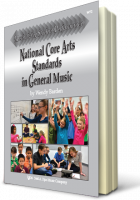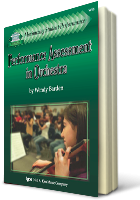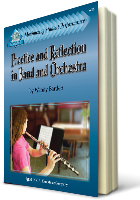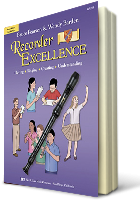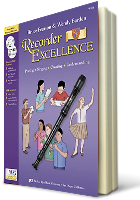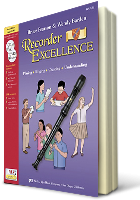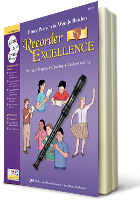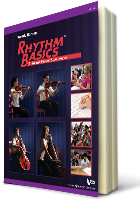“I’m Quitting Band!”: Why Students Leave, and What You Can Do
______________________________________
This was first published on September 23, 2019:
https://www.smartmusic.com/blog/im-quitting-band-why-students-leave-and-what-you-can-do/
“I’m quitting band!” is a phrase no director wants to hear. In spite of all the great things happening in a band program, you will still hear it from time to time. Today we’ll look at what reasons students give for quitting band, and then share some thought-provoking questions around what we might do to help them choose to stay in our programs.
The Research
A few years ago, the music department in District 279–Osseo (Minnesota) Area Schools conducted an action research project at the start of the school year. Band students across the district responded anonymously to a brief survey:
Do you plan to be in band next year? Yes No Not sure
Explain your response. ___________________________________________
Responses were open-ended rather than multiple choice so as not to give students any ideas they didn’t already have. The number of responses tallied was 2,822.
The percentage of students indicating No or Not sure varied by grade level (grades 5 through 11), yet ten reasons immerged from the group. Directors considered this survey a formative assessment—evidence gathered to inform next steps in their teaching—and posed a lot of questions.
Take a few minutes to review students’ top responses in the survey:
10. “I don’t plan to pursue a music-related career.”
9. “I want to try other electives.”
8. “My friends aren’t in band.”
7. “It depends on who the teacher is.”
6. “I’m not very good” or “It’s too hard.”
5. “I don’t practice enough outside of class.”
4. “It depends on what my parents say.”
3. “I don’t like performing in concerts.”
2. “I don’t like the music.”
1. “I don’t like to play my instrument.”
The reasons gathered in this action research are likely similar to ones a few of your students may have, too. Below we look at each of these reasons and share some of the questions and strategies considered by the directors that may also apply to your program.
Reason 10. “I don’t plan to pursue a music-related career.”
Truly, most students in band do not see it as vocational training. And yet without realizing it, students are developing 21st-century skills within the large ensemble experience—skills that businesses identify as essential in their employees! It’s up to us to let parents and students know that all these skills are practiced in band.
- Collaboration – working together to accomplish a common goal
- Flexibility and Adaptability – adapting to changing roles, responsibilities, and priorities
- Initiative and Self-direction – monitoring personal understanding and learning needs to complete tasks
- Social and Cross-cultural Skills – working respectfully and productively with others
- Productivity and Accountability – meeting goals for achieving high-quality work
- Leadership and Responsibility – acting responsibly with the interests of the larger community in mind
For more information, see Partnership for 21st Century Skills, “21st Century Skills Map: The Arts” (www.P21.org).
Reason 9. “I want to try other electives.”
There could be several competing factors here—your classroom and program, school scheduling structures, students’ personal interests, etc. Some are easier to influence than others.
- Is the band program visible and highly regarded by the student body?
- Is the “cost” of participating in band worth the perceived “benefit”?
- Is there another elective that all students are clamoring to take, and if so, what might be the basis for their interest—amazing projects displayed in the halls, a teacher who is fun to be around, an “easy A”?
- From the very beginning, have students and their parents thought of band as a long-term commitment—something they will continue through high school?
- Does the daily/class schedule give students limited elective hours, meaning if they play in band that takes away the opportunity to explore other interests?
- What support do students receive when planning their high school classes? Are they thinking about a four-year plan or simply year-to-year?
- What information do parents receive/read/understand about high school classes? In your concert programs, could you include sample four-year plans that show where electives—any electives—can be taken?
Reason 8. “My friends aren’t in band.”
Without question, relationships matter! It is very important that teachers across the school work to develop community in their classrooms where everyone knows everyone else and feels comfortable working with anyone.
- Make a commitment to building both strong student-to-student and teacher-to-student relationships.
- Incorporate a variety of team-building activities in your rehearsals throughout the year—activities that are non-threatening, musical or non-musical, fun or serious, require different groupings.
- What would it take for their friends to stay in band, too?
The investment of 5-10 minutes here and there is time well spent! Developing stronger relationships might be the end goal to “my friends aren’t here,” but strong relationships are also critical to student learning and the ensemble’s performance.
Reason 7. “It depends on who the teacher is.”
Siblings, friends—other students on the bus or in the cafeteria—talk. Make no mistake, for better or worse, our reputations precede us.
- Does it seem to students that you enjoy working with them? Do you smile, show your sense of humor, develop a relationship with all?
- Do students think of you as being fair and consistent?
- How is your follow through? Can students trust you to do what you promise?
- How is your classroom management? It isn’t fun for anyone to be in a room where the teacher is yelling all the time.
- Is your classroom student-centered or teacher-centered? Do you make all the decisions about repertoire, musical interpretation, seating, classroom expectations, performances, assessment, or is there room for student voice and choice?
I also suggest that you invite music colleagues to stop by rehearsals as often as they can. It’s important that students see that you know and get along with each other. As students move from one level to the next they will already feel like they know at least one teacher and want to be in their ensemble.
Reason 6. “I’m not very good” or “It’s too hard.”
Are these your students’ words, or a message they are somehow picking up from you?
- Is there a band room culture that believes everyone’s contribution to the ensemble is valued?
- Do students get the feeling from you that they are capable of achieving?
- Have students been challenged at the appropriate level or is music in their folders out of reach right now?
- Might some students have a fixed mindset—they lose interest (aka give up) when learning become challenging?
- Is there a way for students to ask for—and receive—help on new skills or tricky measures in their music?
- When students submit performance assessments what feedback do they receive? Specific, descriptive feedback (rubrics, checklists, comments) conveys what students do well, what they need to work on, and what they need to do to improve.
Reason 5. “I don’t practice enough outside of class.”
Again, are these your students’ words, or ones they’ve heard you tell them over and over?
- Do you grade on the number of minutes practiced rather than tasks accomplished?
- Do students know what and how to practice? Do they have strategies, an exemplar, and other resources to be able to work independently?
- What about students who live in an apartment or other situation where it is not possible to practice at home? How would the rehearsal change if you allocated a few minutes for everyone to work out tricky spots in the music, then come back together?
- Do students have access to their [larger] instruments outside of class? Can they take the instrument on the bus or do they need a ride? Can they practice in the music area at other times during the day?
Reason 4. “It depends on what my parents say.”
Thankfully, parents still play a very important role in the vast majority of our students’ lives.
- How do you communicate with parents about benefits of music education and playing an instrument? This needs to be ongoing—information on your website, a paragraph in every concert program, talking points for parent-teacher conferences.
- Do parents know how important it is for their children to belong to a group in school? What better group of peers can there be than the band?
- Do parents recognize that you know and care about their child for more than his or her musical abilities? Many students have the same director for 2, 3, 4, even 6 years, and we can really get to know students/families.
Not to be overlooked, how does the student’s participation impact the parent? What time and financial commitments are expected such as weekend rehearsals, purchasing band shirts, participation in fundraising, private lessons or step-up instruments? Is the “cost” of participation worth the “benefit”?
Reason 3. “I don’t like performing in concerts.”
Follow up by asking, “ANY concerts?”
- How many performances does the band have in a year?
- Is there a difference between performing in the curricular Fall and Spring concerts and concerts that serve a broader community purpose such as celebrating Veteran’s Day or dedicating the new community library?
- Are students proud of how the band sounds? Is the music appropriately challenging and are students able to play their parts confidently?
- Does the student struggle with a formal diagnosis of performance anxiety?
- Might students have to care for siblings in the evenings, have problems getting the required concert attire, or not have a ride back to school? Arranging a ride with someone else is not always an easy fix.
- Are their parents able to attend concerts? Or, might this sentiment be coming from a student who is dropped off and then picked up well after everyone else has gone home?
- Are students involved in other activities that conflict with concerts—religious classes/observances, sports, work? How can you help students resolve scheduling conflicts? Can you plan your concerts to avoid conflicts with religious observances?
Reason 2. “I don’t like the music.”
Repertoire can be a significant factor to enjoying band, but it’s not as simple as playing songs students listen to outside of class.
- Mix it up! Do you introduce a variety of musical styles and genres? Yes, and… sometimes students are surprised that their favorite piece of a concert is a classic.
- Have you sought out music of diverse composers—composers who look like your students? You might start with an online database such as www.composerdiversity.com.
- What would it take to give students some choice in repertoire? Is there an arrangement of a new pop tune that fits your pep band? Did students hear a piece they really liked performed by another band at contest? What if you have been working on five pieces and students help determine which four will be performed at the upcoming concert?
- Could one of your concerts each year be a themed or pops concert? Engage students in as many of the creative decisions and as much of the work as possible.
- How might students’ own compositions be brought into the full band?
Reason 1. “I don’t like to play my instrument.”
What support are you able to give your beginners (and their families) when it is time for them to select an instrument? This first decision is critical to long-term success and satisfaction.
- Do students have their heart set on playing a specific instrument? Is there a way they could try that instrument before making a final decision? Better yet, could they try out several different instruments?
- Do students’ physical characteristics seem well-suited to their favored instrument? Yes or no, have them try it out. On more than one occasion a student with a teardrop lip has been able to produce a beautiful flute tone.
- What about a student’s disposition? Are there other elements that seem to factor into success on one instrument more than another such as singing in tune or reading fluency?
- Do you have a rule that beginning percussionists must have studied piano for two years? Hmmm… I’m wondering about equity?
- Is the student looking forward to playing the same instrument as another family member? Refer back to the first two bullets.
- Is the student’s only option to play an instrument already in the family? That might work out well if it is also a suitable choice and if the instrument is in good playing condition.
- Does the student have their heart set on playing ______ (fill in the blank), but you really need more _______? Yes, we need balanced instrumentation and yet, selecting an instrument is also personal and ultimately a family’s choice.
Two Final Thoughts and a Wish
Two Thoughts
First, the questions generated in this action research may leave you feeling that anything and everything we do as teachers plays a part in whether or not students are drawn to continue in band. If so, at first that may seem daunting. Instead, I encourage you to think that the opportunities we have to encourage retention are endless.
Secondly, for all we do, there will still be students who quit.
A Wish
Whether they’re in band for two months or six years, whether they make All-State Band or play quietly in the back of the section, my wish is that every student will remember good things about being in band. We are counting on each of them to become the parents, principals, and school board members who support music education for the next generation.





